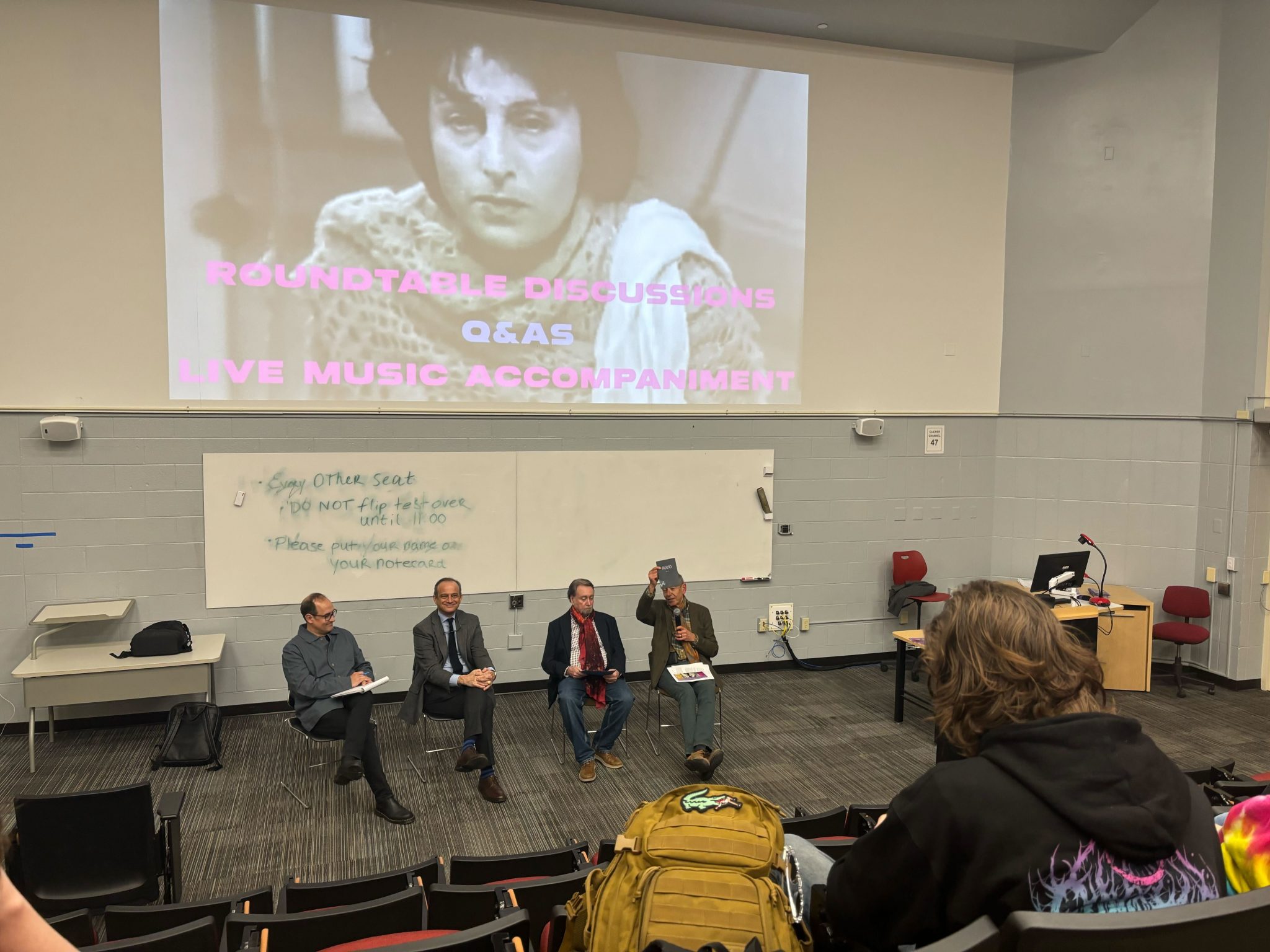University of Maryland students, staff and faculty explored and celebrated Spanish and Mexican filmmaker Luis Buñuel’s work at the Il Cinema Ritrovato on Tour film festival Thursday.
This university’s event marked the second day of the five-day festival, which also hosted events at the Italian Cultural Institute in Washington D.C., the AFI Silver Theatre and Cultural Center in Silver Spring, and the National Gallery of Art.
This year marks the fourth iteration of the festival, which is an extension of the Il Cinema Ritrovato festival in Bologna, Italy. Bologna is home to one of the world’s leading film restoration labs, Cineteca di Bologna, showcases its newest restorative works at the Il Cinema Ritrovato festival.
Thursday’s event had a specific focus on the life and work of Buñuel, the Oscar-nominated director and screenwriter whose career stretched from the silent era to the late 1970s.
The festival kicked off with a screening of the documentary Buñuel: A Surrealist Filmmaker, preceded first by a roundtable discussion including members of this university’s Spanish and Portuguese department and the documentary’s director, Javier Espada.
[UMD student creates bag business to highlight Cameroonian culture]
The documentary, which premiered at the 2021 Cannes Film Festival, provided an in-depth look into Buñuel’s life and work. Mauro Resmini, a cinema and media studies and Italian associate professor at this university, described Buñuel as “daring and ambitious.”
“He provides a certain kind of standard and inspiration for attempts to represent the unconscious on film in a way, and the dynamics of desire and drives in cinema,” Resmini said. “His experimentations, especially early on during his surrealist avant-garde period, but also after the war, for instance, in the 50s and 60s, they’re still in some ways unmatched.”
Attendees later got a taste of Buñuel’s surrealism with a screening of Belle de Jour, one of his most well-known works. The film tells the story of bored housewife Séverine, portrayed by prolific French actress Catherine Deneuve, and her decision to become a prostitute — leading up to her choice’s dramatic fallout.
Buñuel’s inventive narrative techniques carried away the packed audience, who laughed together at the film’s comedic moments. Senior philosophy and cinema and media studies major Rob Lloyd said he enjoyed the film, and believed the event could become a model for cinema and media studies’ future on campus.
Although students discuss films together in cinema classes, they often lack the ability to watch films in a collective environment outside of the occasional dorm room or apartment, environments that lack the sound and projection quality of the festival’s screening, Lloyd said.
“One of the beautiful aspects of cinema is that it’s a shared form,” Lloyd said. “The biggest bummer of the [cinema and media studies] program is that we very rarely have the opportunity to share the movies.”
That idea of togetherness — experiencing cinema in a collective space — reflects the festival’s core values.
[‘Dune: Part Two’ is this year’s blockbuster messiah]
As a result, the festival takes on a nomadic appearance, according to Valeria Federici, this university’s Italian language program coordinator and one of the festival’s organizers.
“A key word for us is collaboration,” Federici said. “This event has always been about collaborating with student groups, collaborating with other departments, collaborating with other organizations.”
The festival’s focus on Buñuel, who died more than 40 years ago, was a result of those partnerships. Federici and other event coordinators asked departments in the languages, literatures and cultures in school for possible festival focuses, and the Spanish department selected Buñuel.
The festival continued over the weekend, showcasing restored American classics at the American Film Institute on Friday, and concluding with screenings of two Roberto Rossellini films at the National Gallery of Art on Saturday and Sunday.



